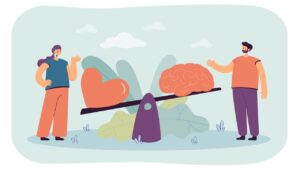I’m a firm believer of not depriving yourself of delectable foods, however, there should be a balance. 95% of your food should be healthy, with the junk making up a small part of your balanced diet only 5%. Furthermore, there are many risks and side-effects of odd eating habits, not just on your physique but on your health and wellbeing too.
Commonly, fast food products chained to unhealthy diets. These are rich in carbohydrates and high-fat content, frequent consumption of fast food products can definitely contribute to an unhealthy diet. However, fast foods aren’t the only cause of unhealthy diets.
Avoid eating one type of food
Unhealthy diets also include eating only one type of food. The one who consumes only meat products is likely not getting the daily vitamins and minerals they need. This can be easily reformed by adding fruits, vegetables, and grains to the diet.
Another example of an unhealthy diet involves excessive consumption of a certain product or nutrient like a diet which is high in sodium. Someone who chooses to eat bacon (prepared by cuts of meat), cold cuts (sliced meat) and other salt-preserved products with frequency will be consuming too much sodium-coupled with this, 9 out of 10 people eat too much sodium.
Health issues with Affect from Eating Habits
This can result in a variety of health issues, like increased blood pressure and risk of cardiovascular disease, etc.
Effect on the digestive and cardiovascular systems
Most unhealthy foods are loaded with carbohydrates with no fiber. When your digestive system breaks down these foods, the carbohydrates released as glucose into your bloodstream. As a result, your blood sugar level increases and to lower the sugar level, pancreas release insulin. As your body utilize the sugar, its high level returns to normal.
This blood sugar process is highly regulated by your body, and as long as you’re healthy, your organs can properly handle these sugar issues. This increases your risk for insulin resistance, type 2 diabetes, and weight gain.
High sugar and fat content
Many fast-food meals have added sugar which means extra calories and little nutrition. The American Heart Association (AHA) recommend eating only 100 to 150 calories of sugar per day. That’s about six to nine teaspoons. No amount of fat is either good or healthy. Eating habits of foods that contain fats can increase your bad cholesterol, and increase your risk for diabetes and heart disease.
High levels of sodium
The combination of fat, sugar, and lots of sodium (salt) can make unhealthy food tastier. But diets high in sodium can lead to oedema, which is why you may feel bloated, or swollen after eating fast food. A diet high in sodium also has drastic impacts on people with blood pressure conditions. Sodium increases blood pressure and put pressure on your heart and cause cardiovascular disease.
Moreover, according to one study, about 90% of adults underestimate the problems caused by sodium. Keep in mind that the AHA (alpha hydroxy acid) recommends adults not to eat more than 2,300 milligrams of sodium per day.
How reproductive system is affected?
Ingredients in the unhealthy diet may have an impact on your fertility. One study found that processed food contains phthalates. Phthalates (a substance added to plastics to increase its quality) are chemicals that can interrupt how hormones act in your body. Likewise, exposure to high levels of these chemicals could lead to reproductive issues, including birth defects.
Effect on the integumentary system
Firstly, unhealthy foods also have dangerous effects on the skin. Carbohydrates in an unhealthy diet lead to acne breakouts. Carbohydrate-rich foods lead to blood sugar issues, and these sudden jumps in blood sugar levels may trigger acne. Secondly, people who eat fast food at least three times a week are also more likely to develop eczema. Eczema is a skin condition that causes irritated patches and itchy skin.
Unhealthy diet makes you physically weak and affects your bones
Carbohydrates and sugar in fast food and processed food can increase acids in your mouth. These acids can break down tooth enamel. As tooth enamel disappears, bacteria can take hold, and cavities may develop. In addition, obesity can also lead to complications with bone density and muscle mass. People who are obese have a greater risk of falling and breaking bones. It’s important to exercise regularly to build muscles, which support your bones and start a healthy diet to minimize bone loss.








